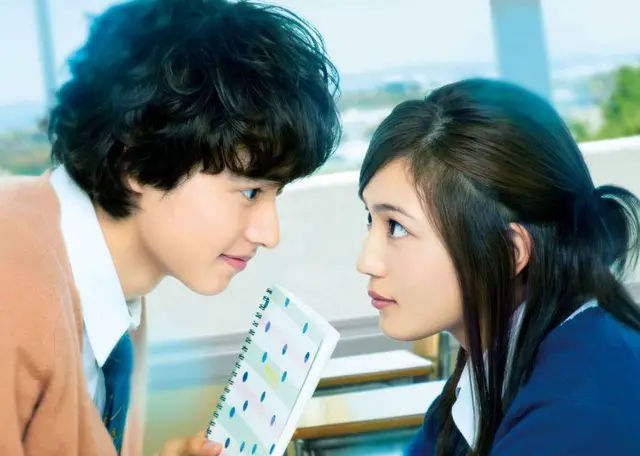Someday soon someone is going to come up with an algorithm for commercialseishun eiga(youth films). Plug in the variables — teenaged love in its more innocuous variations being first and foremost — and pop out a script for another hit.
If not computer-generated, Shosuke Murakami’s “One Week Friends,” with its story of a manga-loving guy falling for a memory-impaired girl, contains obvious borrowings from successful predecessors, not all local. Based on Matcha Hazuki’s manga of the same title, it is both the latest in a line of domestic movies with memory as a theme — “Gachi Boy: Wrestling With a Memory” (“Gachi Boi,” 2008) and “Forget Me Not” (“Wasurenai to Chikatta Boku ga Ita,” 2015) being others — and a clever variation on “Groundhog Day.”
Similar to that 1993 Harold Ramis comedy classic, the hyperactive curly-haired hero, Yuki (Kento Yamazaki), is caught in a sort of time loop as he frantically tries to win over the heroine: the shy, cute Kaori (Haruna Kawaguchi). But unlike Bill Murray’s obnoxious weatherman, Yuki is not the victim of a cosmic prank (or rather karmic justice). Instead, he is in love with a girl who not only can’t get his name straight but also forgets his very existence after the weekend. She tells him bluntly that even being “just friends” is completely out of the question.
Kaori, we are told, is the victim of an actual condition called dissociative amnesia, caused by a shock more psychological than physical. The nature of that shock is not revealed until later, but scenes of her worried parents with a furrowed-browed doctor establish the reality and severity of her problem.
At first, however, all Yuki knows is that Kaori blanks on him every Monday, no matter hard and successfully he works to win her friendship the previous week.
Then he suggests exchanging a journal with her, in the form of a polka-dot notebook, so she will have something tangible to remind her of their times together and, however indirectly expressed, his feelings for her. Meanwhile, Yuki fills the margins of a thick tome, borrowed from the school library, with his own manga inspired by Kaori.
As played by Yamazaki, who starred in the radically different role of the arrogant teenage lady-killer in Ryuichi Hiroki’s “Wolf Girl and Black Prince” (“Okami Shojo to Kuro Oji,” 2016), Yuki is puppy-doggishly goofy, nice to a fault and apparently fated to remain eternally in the “friend zone” with Kaori.
But when a tall, good-looking, self-confident guy from Kaori’s past appears — and her memory suddenly, if shakily, revives, Yuki’s surprise is mixed with visible, palpable pain. Beta males in the audience, remembering their own agonizing failures at romance (usually having something to do with their crimes against coolness and the emergence of a hotter rival) will commiserate.
Kawaguchi, who played a traumatized young woman in Kiyoshi Kurosawa’s “Creepy” (“Kuripi: Itsuwari no Rinjin,” 2016), has an arguably tougher assignment as Kaori, since she must win audience sympathy while playing, in the film’s opening scenes, an unsmiling, close-mouthed emotional blank. Why, I started to wonder, should poor Yuki bother? But Kaori’s essential pureness of heart (which contributed to her current sad state) shines through.
For director Shosuke Murakami, “One Week Friends” is the most recent addition to a succession of romantically themed TV dramas and films, including his 2005 hit “Train Man” (“Densha Otoko”). But this new film is less about whether the guy finally gets the girl than the importance of memory and the pathos of its fragility, and the wonderfulness of friendship, however brief.
Perhaps none of those kids who signed your high school yearbook with “forever” and “always” still count as your friends — even on Facebook — but they can also be hard to forget. That is until something like Kaori’s mental eraser wipes the slate clean. May it happen to you later — or never.
(Japan Times)
 简体中文
简体中文





